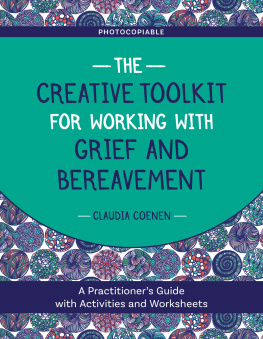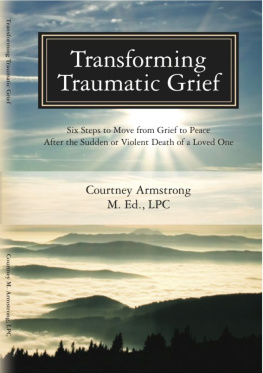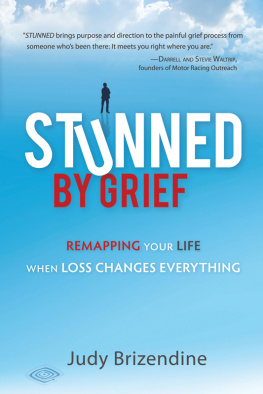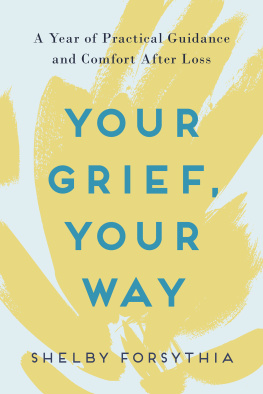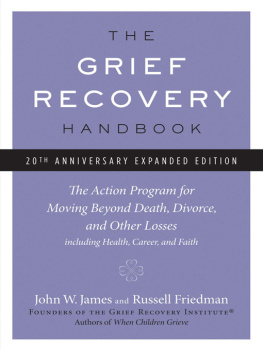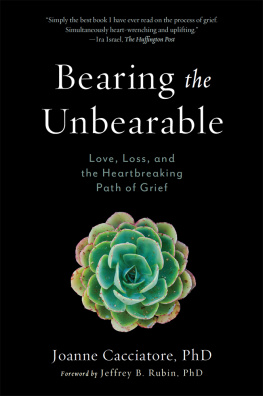THE PHOENIX
PHENOMENON
THE PHOENIX
PHENOMENON
Rising from
the Ashes of Grief

JOANNE T. JOZEFOWSKI, Ph.D., R.N.

This book was set in 11 pt. Century Schoolbook and printed and bound by Book-Mart Press, Inc. of North Bergen, NJ.
Copyright 1999, 2001 by Joanne T. Jozefowski
10 9 8 7 6 5 4 3 2
All rights reserved. No part of this book may be used or reproduced in any manner whatsoever without written permission from Jason Aronson Inc. except in the case of brief quotations in reviews for inclusion in a magazine, newspaper, or broadcast.
Library of Congress Cataloguing-in-Publication Data
Jozefowski, Joanne T.
The phoenix phenomenon : rising from the ashes of grief / Joanne T. Jozefowski
p. cm.
Originally published: Northvale, NJ : Jason Aronson, 1999. With addendum.
Includes bibliographical references and index.
ISBN: 978-0-7657-0209-8
1. Grief. 2. BereavementPsychological aspects. 3. DeathPsychological aspects. I. Title.
BF575.G7 J69 2001
155.937dc21
2001056164
Printed in the United States of America on acid-free paper. For information and catalog write to Jason Aronson Inc., 230 Livingston Street, Northvale, NJ 07647-1726, or visit our website: http://www.aronson.com
This book is dedicated to my mother,
Valerie J. (Pluta) Wondolowski,
whose life is a paradigm of perfect love,
and to my father,
Dr. Joseph P. Wondolowski (19071961),
Physician, Humanitarian, Dad.
Contents
by Therese A. Rando, Ph.D.
Foreword
It is fairly easy to sink ones psychological teeth into pathology and to identify problems and trace their possible roots. What is infinitely more complicated, however, is to identify precisely how a person has managed to avoid pathology, or be robustly healthy, especially in situations where there has been significant potential for negative outcomes.
Of course, there is a distinct difference between the absence of pathology or pain and flourishing wellness and healthiness, but in the thanatological literature, this reality appears to have been somewhat overlooked. The traditional focus has been upon negative or neutral outcomes after major loss. Relatively scant attention has been paid to studying the positive responses to bereavement, particularly those that promote growth and transcendence. While most self-help and professional books identify the problems inherent in grieving, too few point out its potentials. Kudos must go to Dr. Joanne T. Jozefowski for illuminating a topic that is so clinically relevant, yet so poorly examined.
For too many authors, as well as for too many bereaved individuals, loss is perceived only in its most negative aspects. There is insufficient appreciation of its positive transformative possibilities. Cure of the grief, elimination of the symptomatology, and survival of the crisis are the goals. There is a focus on the eradication of distress and a striving for return to prior functioning. And, in truth, there is nothing wrong per se with such objectives. Nevertheless, they fall short of bringing many bereaved individuals to where they want or need to be following the loss of a beloved other. Growth, maturation, meaning making, and numerous other positive outcomes are not only possible, but possible in fashions that have the potential to enhance various aspects of the mourner, honor and connect to the deceased, and contribute to others in the mourners world.
While the bereaved person may not have had a choice in the death of a loved one, he or she does have a choice in how to respond to that death after the period of acute grief it generates. An individual may stop at survival, may stabilize and work through secondary losses, but not grow past where he or she once was, or may continue on to transcend the experience and surpass that former self.
Healthy contending with the death of a loved one requires active efforts. Merely expressing feelings or reacting to the loss is insufficient. Those, like Jozefowskis Phoenix Grievers, who demonstrate the courage and determination that result in a renaissance of body, mind, and spirit in the aftermath of tragedy, are distinguished from other grievers. The pain and grief for both sets of bereaved individuals are the same, but the responses to it mark the difference between one who survives and one who surpasses, one who only regains former equilibrium and one who grows and transcends the loss.
For those who want to live and not merely survive, for those who want something good and meaningful and constructive to come out of the death of their loved one, for those who desire to achieve self-actualization over simply adequate coping, as well as for those who want to assist them, The Phoenix Phenomenon: Rising from the Ashes of Grief is a veritable procedural handbook. Intermingling metaphors, parables, and case examples, Jozefowski delineates the attributes of Phoenix Grievers to provide models for transforming and transcending bereavement and to promote not only healthy growth but also self-actualization. A developmental roadmap of the process of grief is accompanied by phase-specific recommendations for the bereaved and for their therapists. Enlightenment and empowerment are the by-products.
Therese A. Rando, Ph.D.
The Institute for the Study and Treatment of Loss
Warwick, Rhode Island
August 1999
Acknowledgments
Most books are neither singular nor solitary projects. They are team efforts, and fortunate is the author who finds the right blend. I was blessed to have superior people by my side and behind me. Without them this book would have remained in its original form, only a dream. My heartfelt thanks and appreciation to my dream team:
Dr. John Madonna, friend and colleague, who opened the door and believed in this book from its inception. His support is immeasurable.
Aldona O. Shumway, whose tireless and unselfish efforts polished and enhanced the manuscript. Her contribution is inestimable.
Dr. Therese A. Rando, colleague and friend, for her ongoing support, enthusiasm, and generous sharing of her time and energy. Terrie is a rare professional whose heart is as bountiful as her talent.
Judith Kowalik, friend and colleague, whose personal and professional expertise contributed a richer texture to the book and whose support has been unlimited.
M. Rachid Och, M.D., friend and colleague, for his wisdom, insight, and dynamic suggestions and for his staunch allegiance and support.
Dr. Al Siebert, friend and colleague, whose professionalism and generosity is exceeded only by his humanitarianism.
Theodore Ted Buyniski, longtime supporter, friend, and fellow-writer, who put in many hours of reading and critiquing the manuscript.
Jacqueline N. Gauthier Valle, longtime friend and colleague, whose valuable insights and critique provided an incomparable perspective.
Gloria and Louis Katz, friends beyond measure, who supported, encouraged, and rejoiced in this project.
The Carroll family: Mary, Frank, Lisa, Brian, June, Kathleen, Paul (Featherston) and Kevin, my cheerleaders all the wayKevin, my godson, who enriched this book through his life and his death.
To my colleagues who have contributed a wealth of expertise:
Dr. Sherwin Nuland, for his candor in relating his personal experiences with grieving and for his generosity in sharing them: a true Phoenix Griever.
Peter Moran, Ph.D., colleague and friend, for his cognitive-behavioral wisdom and ongoing enthusiasm for this endeavor.


